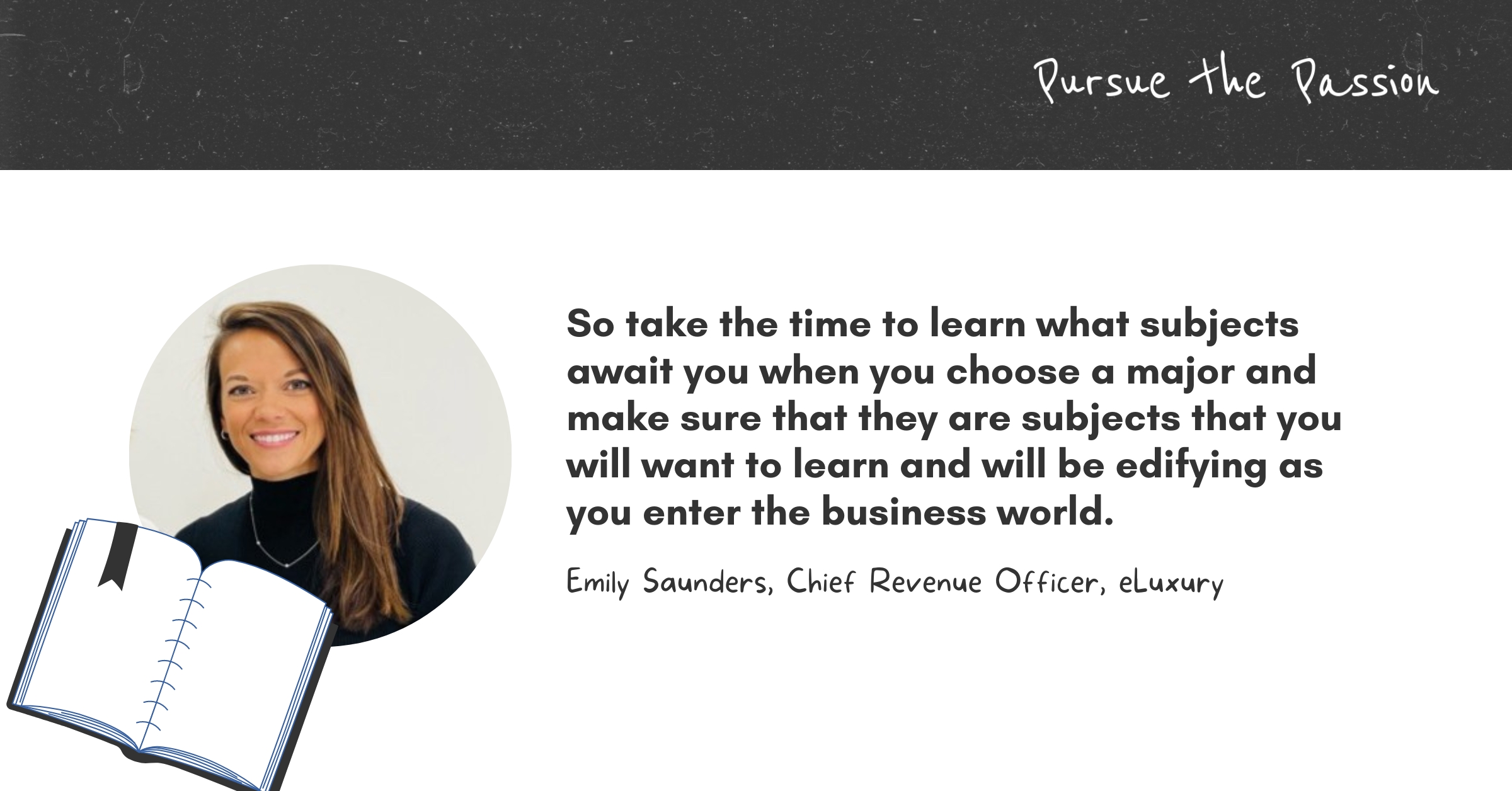What business major should I choose?
From taking intro classes to finding what suits you best, here are 9 answers to the question, “What advice would you give a student looking to choose a specific business major, like Marketing, Accounting, Finance?”
- Take Intro Classes to Find What Suits You Best
- Shadow Someone in the Field
- Add a Tech Minor
- Start Gaining Experience Early
- Look into the Future
- Choose Your Major Based On the Most Competitive Salary
- Compare Curricula
- Interview Real People in Your Careers of Interest
- Follow Your Heart, Not Necessarily Labor Market Trends
Take Intro Classes to Find What Suits You Best
Take an introductory class in each business field before choosing a major. This will help you get a better understanding of what each business field is about and which one you may enjoy the most. You can also ask your professors questions about the field and get their personal insight. When you take an introductory business class, you’re not only learning about the material, you’re learning about the industry as well, which will help you make an informed decision about which business major to choose.Take a look at the syllabus for the course and see if there’s a particular business field you’re interested in. Sign up for the class and see if you’re able to follow along with the material. If you’re able to, that’s a good sign that this field may be a good fit for you. If, however, the material is too difficult for you and you find yourself struggling, then you may want to try another business field.
Matthew Ramirez, CEO, Rephrasely
Shadow Someone in the Field
It’s important to spend a few days shadowing professionals in the major you’re exploring. Find someone willing to let you spend a business day observing and you’ll get a taste of what their “day-to-day” looks like. You might love what you experience, or you’ll quickly learn that’s not the career path for you. Sometimes one day of shadowing the field is all it takes to make a decision!
Logan Mallory, Vice President of Marketing, Motivosity

Add a Tech Minor
If you’re looking to choose a business major, I would advise you to consider combining it with a minor in Tech. The world is increasingly driven by technology, and businesses are looking for employees who are comfortable working with computers and software.
By combining a business major with a tech minor, you’ll be able to demonstrate that you have the skills they’re looking for. In addition, you’ll also have a better understanding of how businesses use technology to market themselves and manage their finances. As someone who has a degree in both business and tech, I can attest to the fact that this combo is becoming more and more popular – and it’s not hard to see why.
If you’re looking to give yourself a competitive edge, consider pursuing a business/tech degree.
Lorien Strydom, Executive Country Manager, Financer.com
Start Gaining Experience Early
The biggest mistake I see students pursuing something in the business industry make is not gaining real-world experience. They miss out on valuable experience and connections if they don’t seek out these opportunities.
I always tell students that they should start seeking internships and job opportunities early in their college career – if they don’t know where to start, they can ask their professor or talk to their campus’s career center to help them find entry-level opportunities. Even if they only work for a summer or a semester, all experience they get is crucial in building their resume, and more importantly, connecting with professionals who can point them in the right direction with full-time job opportunities.
You may find that you have a lot on your plate, but now is the time to figure out what you can handle and how you can balance everything so you can jumpstart your future.
Bill Lyons, CEO, Griffin Funding
Look into the Future
My biggest piece of advice for students looking to choose a specific business major is to look ahead at what job opportunities you could have in the future. You don’t want to back yourself into a corner by choosing a major that doesn’t have a lot of growth or job opportunities. A job like accounting for example would be very specific as to what you could do which might make it tougher to land a job. But this also means you have a lot of expertise in this area as you have studied it extensively. Marketing on the other hand is a bit broader in what you could do in the business world, but this could also make it tougher to land a job once you graduate. This is why it’s important to do your research and look at the possible job opportunities you might have after graduation.
Shaun Connell, Founder, Writing Tips Institute
Choose Your Major Based On the Most Competitive Salary
Many factors should be considered when choosing a business major, such as the industry you hope to enter, the skills you hope to develop, and the geographic location of your desired job. However, one of the most important considerations is salary.
Business majors with the highest starting salaries include finance, accounting, and business administration. Students interested in these fields can find competitive salaries at Payroll BPOs (Business Process Outsourcers). In addition to high salaries, Payroll BPOs offer employees a number of other advantages, such as flexible work schedules, 401(k) plans, and health insurance. As a result, Payroll BPOs are an excellent option for students looking to enter a high-paying field.
Jim Campbell, Founder, Wizve Digital Marketing
Compare Curricula
If you’re considering a major in a business-related field, find out what the curriculum is for every individual major. There will probably be a lot of overlap, but if you pursue finance only to learn that you will be required to take advanced courses in math-heavy subjects (and math isn’t something you love or excel in), you may want to go the marketing route.
Conversely, if you learn that accounting gives you more foundational knowledge that you think will benefit you during your work life, then you should go that route. Always keep in mind that you go to school for four years, but you work for 40. So take the time to learn what subjects await you when you choose a major and make sure that they are subjects that you will want to learn and will be edifying as you enter the business world.
Emily Saunders, Chief Revenue Officer, eLuxury

Interview Real People in Your Careers of Interest
Call up and ask to interview real people working in the roles you are prospectively interested in studying to get a better sense of the realities of their work. For example, if you think you’d like to major in Marketing, call up business owners and marketing professionals to ask them questions about what their day-to-day jobs look like. This will help you understand the nuances of different roles and industries so that when you choose a major, it’s an informed decision.
Follow Your Heart, Not Necessarily Labor Market Trends
Follow your heart, not necessarily labor market trends. The decision-making process is not a piece of cake, especially when it comes to such important things as our future.
Feeling lost and not sure what major to choose, students tend to follow labor market trends. And that’s not always the best idea, I believe. Instead, you should primarily ask yourself which study field you are interested in the most. Labor trends are more likely to change than your genuine willingness to broaden your knowledge of a certain discipline is.
Still, if marketing, accounting, and finance seem equally interesting to you, focus on your talents and skill set next.
Agata Szczepanek, Community Manager, LiveCareer
Submit Your Answer
Would you like to submit an alternate answer to the question, What advice would you give a student looking to choose a specific business major, like Marketing, Accounting, Finance?






